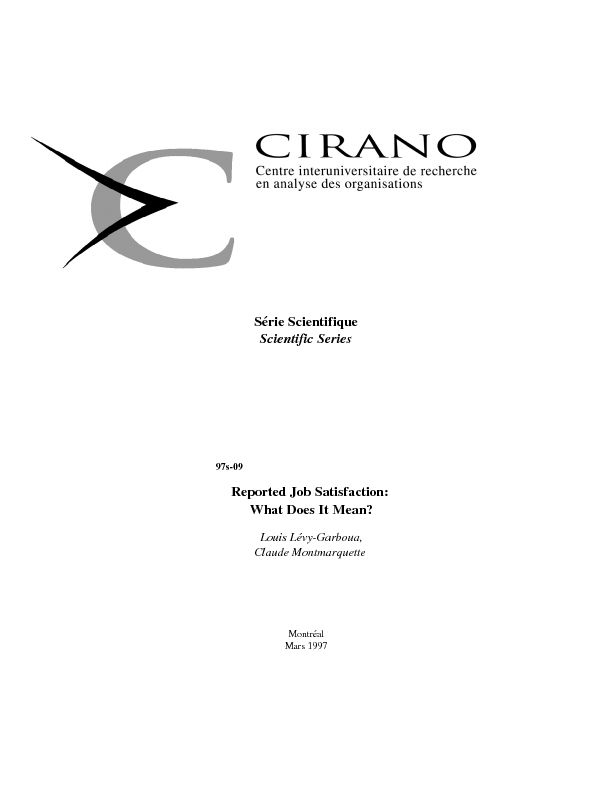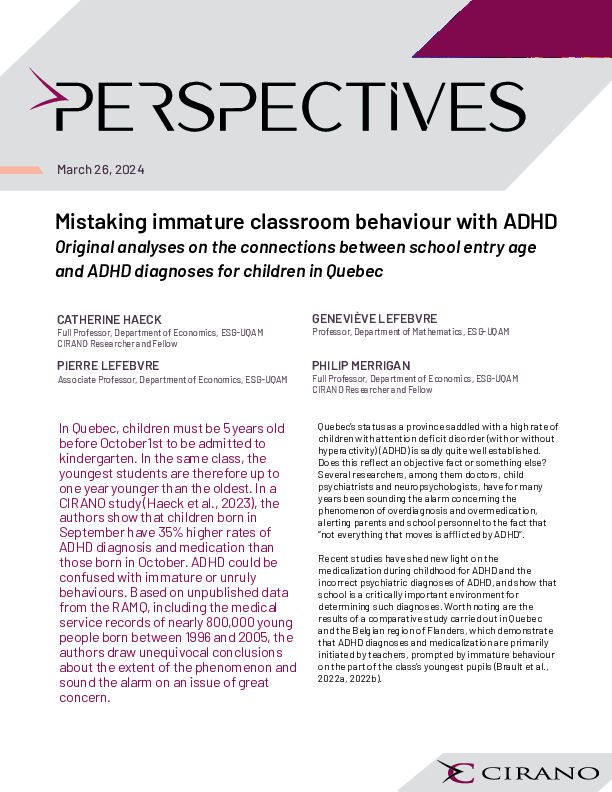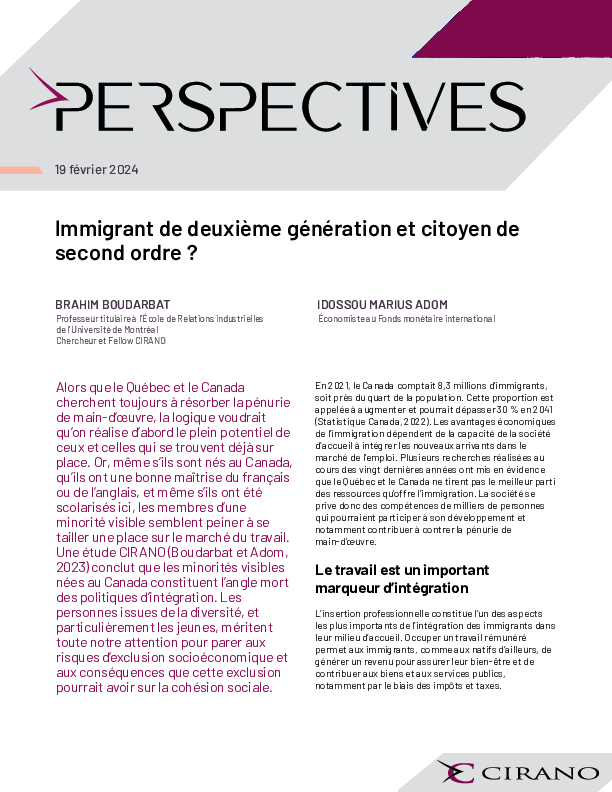Reported Job Satisfaction: What Does It Mean?
By reporting his satisfaction with his job or any other experience, an individual does not communicate the number of utils that he feels. Instead, he expresses his posterior preference over available alternatives conditional on acquired knowledge of the past. This new interpretation of reported job satisfaction restores the power of microeconomic theory without denying the essential role of discrepancies between one's situation and available opportunities. Posterior human wealth discrepancies are found to be the best predictor of reported job satisfaction. Static models of relative utility and other subjective well-being assumptions are all unambiguously rejected by the data, as well as an economic model in which job satisfaction is a measure of posterior human wealth. The posterior choice model readily explains why so many people usually report themselves as happy or satisfied, why both younger and older age groups are insensitive to current earning discrepancies, and why the past weighs more heavily than the present and the future.
[ - ]




